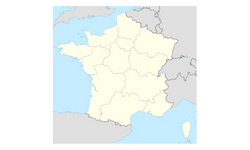*Originally posted on January 13, 2022
Trademarks may incorporate geographical terms but if the USPTO determines that a trademark is “primarily geographic”, the trademark application will be rejected. According to the USPTO,
To support a refusal to register geographic matter, the Trademark Act requires that the mark be primarily geographic, that is, that its primary significance to the relevant consumers in the United States be that of a geographic location.
 Thus, in a dispute over rejection of the NEW YORK WAYS GALLERY trademark application, the Federal Circuit Court was not persuaded that the term “New York” referred to ways of life rather than the geographical location, thereby affirming the USPTO’s decision to refuse the application.
Thus, in a dispute over rejection of the NEW YORK WAYS GALLERY trademark application, the Federal Circuit Court was not persuaded that the term “New York” referred to ways of life rather than the geographical location, thereby affirming the USPTO’s decision to refuse the application.
Disputes over geographical terms may also arise with respect to domain names, another form of intellectual property. For example, in 2019, we wrote about a dispute between several South American nations and Amazon, the company. When Amazon tried to purchase the .Amazon top-level domain name (TDL), Brazil and Peru protested, arguing that the domain name — indeed, the term “Amazon” — did not belong to a company but comprised sovereign territory. Amazon attempted to settle the matter by offering free Kindles (don’t laugh). Nevertheless, The Internet Corporation for Assigned Names (ICANN) sided with Amazon, which now owns the TDL.
In another dispute, the owner of France.com, Jean-Noel Frydman purchased the domain name France.com in 1994 for purposes of operating a commercial tourism business. In 2014, he successfully registered the FRANCE.COM trademark with the USPTO and the European Union trademark office. Apparently, the USPTO did not consider FRANCE.COM, registered for travel related services, as primarily geographic. Perhaps because the top level domain name (.com) suggests a place on the Internet and not a geographical place, or because FRANCE.COM had acquired distinctiveness over the 20 years it had been in use before Frydman registered it. (USPTO records do not reflect the reason why a trademark is registered.)
Life must have appeared easy to Frydman until 2016, when the Republic of France successfully sued France.com in France for rights to the domain name. Now, if one navigates to France.com, you will be redirected to an official French tourism site. Obviously, Mr. Frydman was not happy and filed suit against the Republic of France in the U.S federal court in Virginia, alleging cybersquatting and trademark infringement. The district court rejected France’s motion to dismiss the case on grounds of sovereign immunity, holding that the immunity question was best addressed once discovery was concluded.
On appeal, France prevailed, with the U.S. Fourth Circuit Court of Appeals deciding that the question of sovereign immunity was a threshold issue and one in which France would win. Without getting into the weeds of the Foreign Sovereign Immunities Act, France.com argued that France’s conduct fell within the scope of certain enumerated exceptions to the Act, most importantly, the “commercial activity” exception which,
strips foreign states of immunity in cases “based upon a commercial activity carried on in the United States by the foreign state; or upon an act performed in the United States in connection with a commercial activity of the foreign state elsewhere; or upon an act outside the territory of the United States in connection with a commercial activity of the foreign state elsewhere and that act causes a direct effect in the United States.
The Fourth Circuit Court held that the “seizure” of the domain name did not constitute “commercial activity” and, therefore, France was immune from suit. Details of the court’s reasoning can be reviewed here.
Undeterred, France.com filed a petition for writ of certiorari with the U.S. Supreme Court, which was predictably denied. And that spelled the end of the road for Mr. Frydman.
— Adam G. Garson, Esq.

